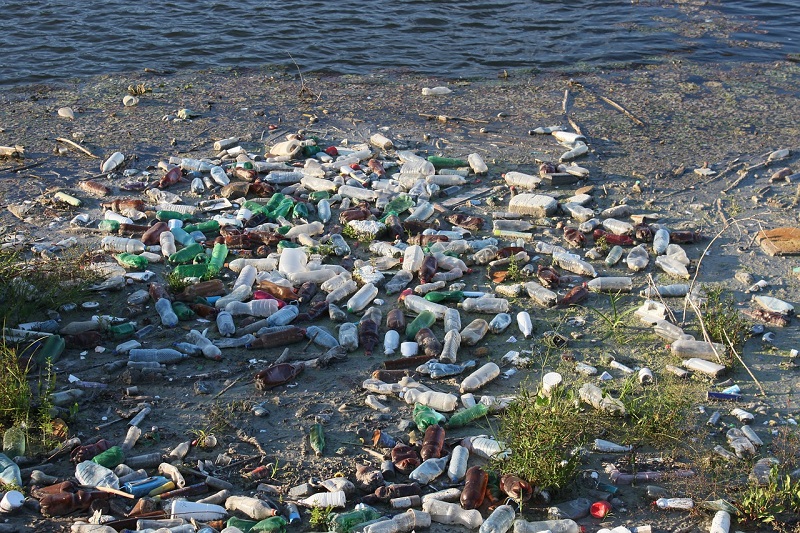Since the late twentieth century, we have depended on single-use plastics for their affordability, convenience, and accessibility. Because plastic has been so embedded in our lives, the demand for this material is high. This caused corporations to produce more, making us uncontrollably accumulate waste.
Although plastic-made products help improve our quality of life because of their affordability and convenience, some people need to be made aware of or continue to ignore the threat of our continued use of this substance. The overconsumption of these bottled water could only take a toll on our planet’s future.
We know plastic water bottles are cheap and accessible, but at what cost? Do you know how your everyday choices as a consumer could impact the environment around you?
In this essay, we will tackle the impacts of plastic water bottles on our environment and why it is alarming. We will also discuss what we can do as consumers to reduce plastic waste in our environment.
What Are the Impacts of Plastic Water Bottles on Our Environment?
One of the impacts of plastic water bottles is how it contributes significantly to global warming. Extracting fossil fuels to produce plastic water bottles creates billions of tonnes of greenhouse gases. According to oecd.org, plastics generated 1.8 billion tonnes of greenhouse gas emissions – 3.4% of global emissions in 2019. 90% of these emissions come from their production and conversion from fossil fuels. When greenhouse gas levels increase, it creates a greenhouse effect that contributes to the warming of our planet.
Another impact of bottled water is that the transportation of these is extremely fuel and energy-intensive. Instead of water traveling through underground pipes to the faucet like tap water does, bottled water is mass-produced and delivered to its consumers. It takes millions of barrels of oil not only to produce these bottles but to also distribute them. Vehicles used to transport water from where it is collected are brought to the plastic bottle factories. However, the fossil fuel burnt by these vehicles in transit contributes to air pollution and carbon emissions.
Another impact of plastic water bottles is how these need to be properly disposed of. Out of the seven billion tonnes of plastic waste produced globally, only nine percent of plastic water bottles are recycled. Most water bottles are made out of polyethylene terephthalate (PET), which is created to be recyclable, but most people need to be made aware of this. As a result, millions of tonnes of these bottles are instead lost to the environment or often shipped to be burnt or dumped in landfills. When thrown into landfills, it takes up to a thousand years for every single bottle to decompose, which could then leak harmful pollutants into our soil and water along the way.
Despite current efforts, it is estimated that around two-hundred million tonnes of plastic is currently found in our oceans. Many marine animals are entangled in or ingest plastic debris, causing suffocation, starvation, and death. Plastics being photodegradable, do not fully disappear; they only break into smaller and smaller pieces. These are called microplastics, so small we cannot see with the naked eye. As microplastics break down, they release toxic chemicals into the environment. These are easily ingested and deadly to wildlife, especially when released into the ocean as plastic waste. Because of this, they accumulate rapidly along the food chain, increasing their toxicity levels.
Our attitudes and behaviors towards plastic must change to ensure our planet’s healthy, safe, and regenerative future.
Single-use plastics have filled our landfills, choked our rivers, and contaminated our oceans. For so long, corporations have put the responsibility on all of us consumers to deal with their failed design problems. However, we consumers can demand the redesign of these big corporations.
By being ethical consumers, we can encourage environmentally-innovative and friendly products and companies and discourage those that ignore the environmental consequences of their actions. This can drive corporations to switch to more sustainable practices.
To become ethical consumers, we can practice a zero-waste lifestyle ethically, economically, and efficiently. By doing so, we must refuse plastics whenever possible and use their reusable counterparts. This way, we can lessen the demand and volume of plastic produced, eliminate its toxicity, and conserve the resources used.
Lastly, we must use our learning about plastic’s impacts by advocating for change. We can spread our awareness by telling local establishments to ditch plastic packaging, cutlery, cups, and bottles and tell them why. We can even pressure our local authorities to improve their waste management. Using our knowledge, we can also spread awareness by talking about these topics to our friends, family, and colleagues to get them involved.
Our decisions today could affect our tomorrow. Together, we can all make change. We can bring about life without endless waste – where the environment and humans flourish. Refuse plastic now!

